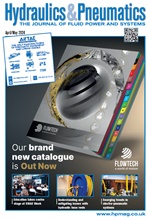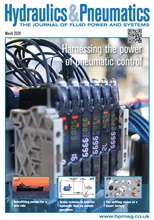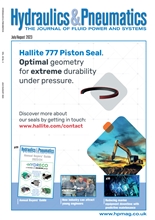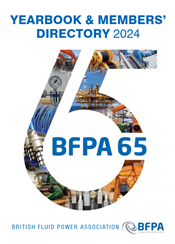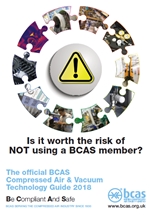Compressed air systems: The importance of ensuring energy performance is optimised

Regularly maintaining any ancillary equipment including dryers, filters, and air receivers is also important, alongside checking inlet filters routinely, and replacing where required, before the pressure drop across them becomes significant.
Calculating the system’s annual cost Before embarking on any compressed air system upgrade to help maximise energy savings, it is important to calculate the system’s total yearly cost.
Option 1
To calculate the electrical consumption of the compressor, operators will need to obtain the reading by sub-metering the compressor house. This will be in kilowatt hours (kWh).
Option 2
A data logging system will also help to determine the yearly cost of the compressor system. This needs to be installed for a period of at least seven days. With this system in place, the pattern of demand can be established, otherwise known as a demand profile, and the off-load running time when there is no demand for air. This does not account for the ‘off-load’ power consumption when the compressor is consuming energy without generating air.
Option 3
And finally, option three allows plant engineers to calculate the annual cost of the system by estimating the energy consumption of each air compressor.
The following working example provides a useful guide: a 75kW compressor operates at 7 bar. It is on load for 80% of the production time, which is 2000 hours per year. Energy consumption of the compressor = 75 x 0.8 x 2,000 = 120,000 kWh/year. If electricity costs £0.1249/kWh, the annual energy cost is £14,988. Should production time increase to 6,000 hours per year, for example, then the annual energy cost would rise to £44,964.
With a range of options available to monitor the annual cost of the air compressor system, it is also important to ensure that alternatives are compared based on ‘whole life’ cost, not just the initial capital outlay. By opting for equipment that is a higher cost but is more efficient, sites could benefit from both lower running costs and total cost of ownership in the long term.
There are many straightforward ways to save energy consumption from compressed air systems and, implementing just one or two of the steps highlighted above can help minimise avoidable waste significantly.
In doing so, industry can make considerable overhead, and carbon footprint savings alongside a significant contribution to bottom line profitability and environmental performance.
For more information, please speak to a BCAS member who can assist in this area by emailing enquiries@bcas.org.uk
1Compressed Air Systems in the European Union. Energy, Emissions, Savings Potential and Policy Actions. Peter Radgen and Edgar Blaustein (Editors: Note that the potential for savings is less than the sum of the savings for individual measures. The total possible savings must be calculated as a product of efficiency gains. It should be considered that the efficiency gain of each measure acts on the residual compressed air system energy consumption.
https://www.linkedin.com/company/british-compressed-air-society/
-
Smart Manufacturing & Engineering Week
05 - 06 June, 2024
NEC, Birmingham -
HILLHEAD 2024
25 June, 2024, 9:00 - 27 June, 2024, 16:00
Hillhead Quarry, Buxton, Derbyshire UK



